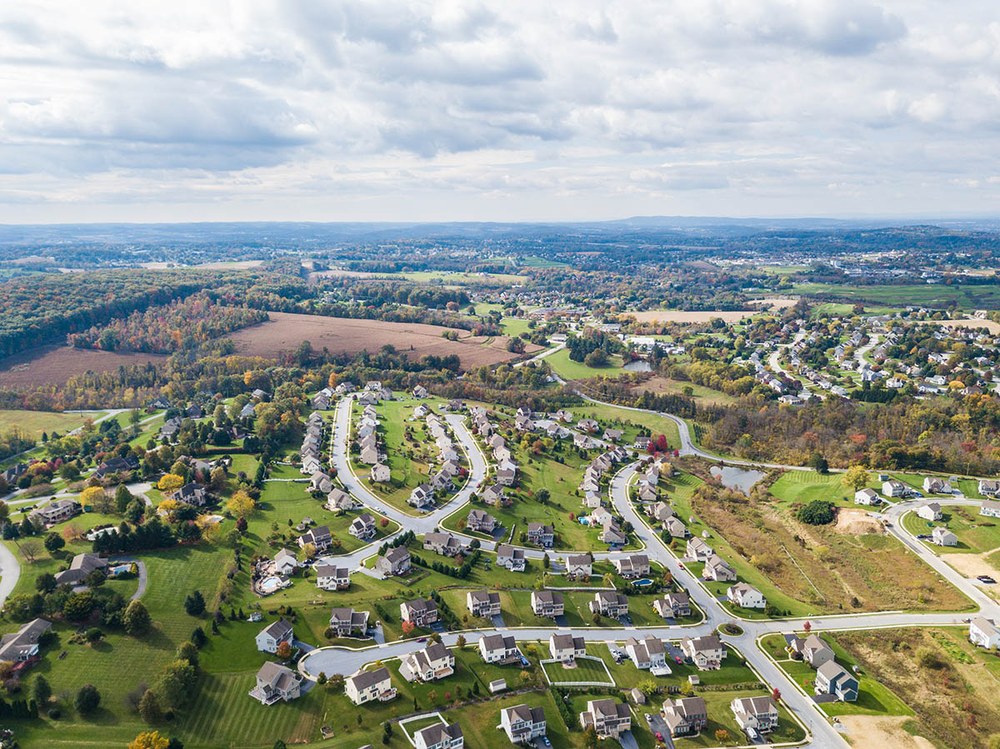Weighing the impacts of anti-sprawl policies can help land-use planners to decrease water pollution
Problem
How can growing urban areas responsibly meet water quality regulations to maintain healthy downstream waterbodies?
Governments create urban growth boundaries to help restrict land development. This decreases negative impacts on people and the environment and regulates the role of land in mitigating nutrient pollution or the delivery of nitrogen, phosphorus, and sediment to local and downstream waterbodies, which can cause numerous environmental problems.
Findings
Penn State researchers used water quality modeling with land-use simulations to investigate the impact of anti-sprawl policies. Their results showed that attempts to limit sprawl may also increase water pollution with higher-density development creating runoff from more impervious surfaces. This problem can be exacerbated when agriculture is allowed to continue business as usual outside the growth boundaries.
Impact
The research revealed the tradeoffs that land-use planners, especially in urbanizing and urban-fringe counties, will need to weigh between objectives for managing urban growth and those for managing water quality.
- Giving land-use planners some ability to manage where and when land-use development takes place can help regions meet water quality regulations.
Related Research Area: Environmental Resilience
Research Credit
Team
- Douglas Wrenn, H. Allen Klaiber, David Newburn
Participating Departments
Partners
- Ohio State University, University of Maryland
Competitive Funding
- U.S. Forest Service Northern Research Station, National Science Foundation, James S. McDonnell Foundation
Federal and State Appropriations
- USDA NIFA Hatch Multistate Project PEN04631, Accession #1014400
Emerging Discoveries
How anti-sprawl policies may be harming water quality
Published Research
Price based policies for managing residential development: Impacts on water quality
- Wrenn, D. H., Klaiber, H. A., & Newburn, D. A. (2019). Price based policies for managing residential development: Impacts on water quality. Resource and Energy Economics, 58, [101115]. https://doi.org/10.1016/j.reseneeco.2019.101115
Office for Research and Graduate Education
Address
217 Agricultural Administration BuildingUniversity Park, PA 16802-2600
- Email agresearch@psu.edu
- Office 814-865-3136
Office for Research and Graduate Education
Address
217 Agricultural Administration BuildingUniversity Park, PA 16802-2600
- Email agresearch@psu.edu
- Office 814-865-3136


